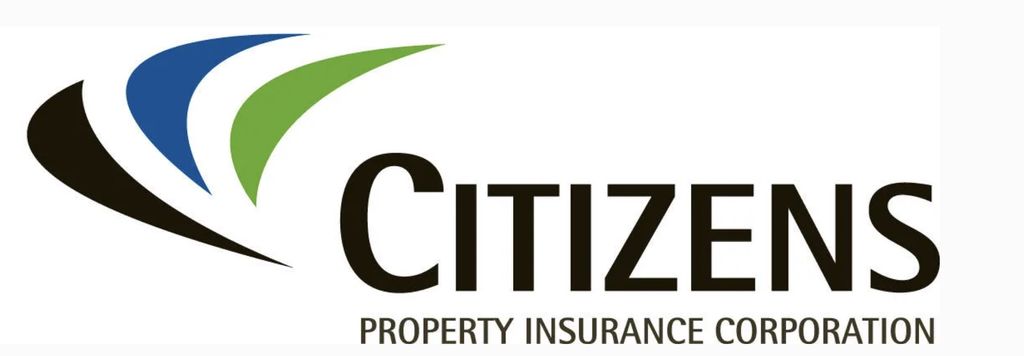
Some Floridians with state-run Citizens Property Insurance could soon find their homeowners policies shuffled to an unregulated insurer.
In a first for the state, lawmakers are poised to allow companies known as surplus lines insurers to take out policies from Citizens. Up to 80,000 Floridians — those whose second homes are covered by Citizens — could find themselves with policies lacking basic consumer protections, such as a guarantee that their claim could be paid.
Senate Bill 1716 and House Bill 1503 have sailed through the Legislature with few questions asked and almost no debate. But it would be a marked shift in policy for the state.
For decades, only regulated insurers were allowed to take policies out of Citizens, the insurer for Floridians who can’t otherwise find coverage.
Some Floridians with state-run Citizens Property Insurance could soon find their homeowners policies shuffled to an unregulated insurer.
In a first for the state, lawmakers are poised to allow companies known as surplus lines insurers to take out policies from Citizens. Up to 80,000 Floridians — those whose second homes are covered by Citizens — could find themselves with policies lacking basic consumer protections, such as a guarantee that their claim could be paid.
Senate Bill 1716 and House Bill 1503 have sailed through the Legislature with few questions asked and almost no debate. But it would be a marked shift in policy for the state.
For decades, only regulated insurers were allowed to take policies out of Citizens, the insurer for Floridians who can’t otherwise find coverage.
That was in part to protect consumers. These regulated insurers pay into the Florida Insurance Guaranty Association, which ensures that open claims will be paid if the company goes out of business. State regulators also examine the companies’ financial health and approve the forms they send consumers and the rates they charge.
None of those things are done for surplus lines insurers, an industry that former state Sen. Jeff Brandes, R-St. Petersburg, once called the “wild, wild West.”
The idea of pushing Floridians’ policies onto those companies has caused angst for some lawmakers.
“It is very concerning that Citizens’ policyholders could find themselves forced to surplus lines insurance companies with limited state oversight,” said Rep. Hillary Cassel, D-Dania Beach.
The Senate bill sponsor, Sen. Jim Boyd, R-Sarasota, said the idea is to shed policies from Citizens, which has about 1.2 million policies. He supports a different bill that would temporarily increase the number of homes covered by Citizens.
Boyd acknowledged that surplus lines policies could be riskier, but under the legislation, state regulators would have to approve those companies’ takeout offers, which he said could offer some protection.
The surplus lines company would also have to have at least an A-rating from the ratings agency A.M. Best.
Boyd, who has an insurance agency, said he hasn’t heard complaints from his own customers with surplus lines policies. He said the companies are often financially stronger than regulated insurers. The presence of surplus lines insurers in Florida has grown during the state’s insurance crisis, according to trade publications.
Unlike other insurance companies that write policies based on basic criteria, surplus lines insurers write custom policies, insuring everything from large condominiums to guitarist Keith Richards’ middle finger. They can offer critical coverage for homes in Monroe and Miami-Dade counties, where Citizens won’t insure homes worth more than $1 million.
Under the legislation, only second homes would be eligible to go to unregulated insurers. There were about 77,000 such policies on second homes with Citizens as of last month, according to the corporation. That could include the properties of snowbirds who don’t use their Florida homes as their primary residence.
The bill would also make it harder for those homes to join Citizens in the first place. They could only be eligible if they can’t find any insurance, instead of being eligible if they find rates more than 20% more expensive than Citizens’ rates.
Like offers from the regulated carriers, Citizens policyholders who receive an offer from a surplus lines carrier within 20% of what Citizens charges would be required to leave Citizens.
The Florida Surplus Lines Association, which represents the industry, has not been lobbying on the bill, records show. Its president, David DeMott, said in a statement that the association supports it.
Some of the push has come from Tampa-based Baldwin Risk Partners, the only surplus lines insurer registered to lobby for the bill. The company has given about $325,000 to politicians and political committees since 2022, records show. The company did not respond to emails seeking comment.
Boyd, whose campaign received $10,000 from the company in December, said he’s spoken with the company about the legislation, although they’re not the only company he’s heard from.
Although Citizens’ board has not taken a formal position on the legislation, a spokesperson said the corporation supports efforts to reduce its number of policies.
The Office of Insurance Regulation has not taken a position on the bill. In a statement, a spokesperson said the office’s “top priority is protecting consumers.”
News Source : Orlando Sentinel.

